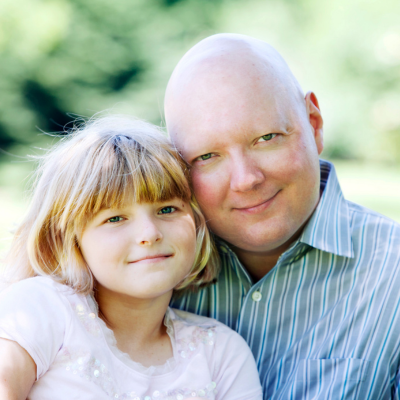Oncological surgery, also known as cancer surgery, may be required when a tumor is solid or concentrated in a specific region of the body. It can serve as a standalone curative measure or be integrated with other therapeutic methods for increased effectiveness. Evansville Surgical Associates offers a team of proficient specialists to guide you through the recovery process.
Cancer surgery comes in numerous types. Facing a cancer diagnosis is an intimidating experience for anyone. Being aware of your options and support from our surgeons can make a significant impact on your healing journey.
Cancer Surgery in Evansville, Indiana
The cancer surgeons at Evansville Surgical Associates are committed to delivering top-tier surgical care in Evansville, IN, and the tri-state area. They’re board-certified and fellowship-trained, leading the field in surgical advancements to ensure the highest quality patient experience.
Employing a multidisciplinary approach, our team collaborates seamlessly with specialists from diverse fields. They craft personalized treatment plans that leverage the unique expertise of each professional.
Our range of procedures encompasses everything from minimally invasive surgeries to intricate interventions, providing comprehensive solutions for individual needs. The collaborative efforts extend beyond our surgical team to include nurses, anesthesiologists, rehabilitation specialists, and, when necessary, early involvement of prosthetists.
This collective teamwork guarantees holistic care, addressing every aspect of your well-being for optimal results. From navigating breast cancer to lymph node dissection, our dedication to remaining at the forefront of surgical advances ensures that we deliver the best possible care throughout the entire surgical process.
Understanding Oncological Surgery
Cancer surgery is a specialized field within surgical medicine. It’s focused on surgical procedures used in cancer diagnosis and treatment.
The primary goal of oncological surgery is to remove cancerous tumors and surrounding tissues. They also minimize the impact on healthy structures and functions during the surgical process. This field plays a crucial role in the comprehensive treatment of cancer. It often works in conjunction with other treatments such as chemotherapy and radiation therapy.
The scope of oncological surgery encompasses a wide range of procedures. This includes:
- Localized tumor excisions
- Lymph node dissections
- Organ resections
Our Evansville surgeons aim to eradicate or reduce the tumor burden while preserving as much normal tissue and function as possible. Additionally, reconstructive surgery may be involved to restore form and function post-treatment.
Various types of cancer are commonly treated with surgical interventions. Solid tumors, such as those in the breast, colon, lung, and prostate, can be surgically removed. Surgery may be performed for blood cancers, such as lymphomas and leukemias, when they involve solid masses or lymph nodes.
Early detection of cancer is paramount for successful oncological surgery. In many cases, surgery is most effective when the cancer is diagnosed at an early stage. This is before it has metastasized or spread to other parts of the body.
Surgical intervention at an early stage not only improves the chances of complete tumor removal but also reduces the need for more aggressive treatments.
In some cases where the cancer is incurable, palliative surgery is used to enhance your quality of life. It aims to:
- Alleviate symptoms
- Reduce pain
- Address complications
By reducing tumor burden, palliative surgery can improve organ function and alleviate discomfort. This approach helps you manage symptoms and maintain a higher level of well-being, even in the face of an advanced cancer diagnosis.
Types of Cancer 
We treat a wide range of cancers at Evansville Surgical Associates; this list is not exhaustive. Talk to your primary care physician, oncologist, or other physician specialist and our office to see if we provide treatment for your particular case.
Breast Cancer
The surgical process for breast cancer involves two primary options:
- Mastectomy: complete breast removal
- Lumpectomy: partial removal
Lymph node evaluation is crucial to determine cancer spread. Surgeons assess nodes to guide treatment decisions and enhance prognosis accuracy, aiding in personalized and effective breast cancer management.
Colorectal Cancer
Colorectal cancer surgery options include:
- Colectomy: colon removal
- Proctectomy: rectum removal
Sphincter preservation aims to maintain bowel function, while ostomy creation involves diverting waste through a stoma. Colorectal surgeons tailor their approaches to tumor location, promoting cancer removal while preserving the quality of life for their patients.
Pancreatic Cancer
Pancreatic cancer surgery often includes the Whipple procedure, which involves removing the:
- Head of the pancreas
- The part of the small intestine beyond the stomach (duodenum)
- Part of the stomach
Challenges include early detection difficulties and potential complications. Advancements in minimally invasive techniques and perioperative care aim to improve outcomes. This also enhances the feasibility of surgery for pancreatic cancer patients.
Skin Cancer
Skin cancer surgery entails excision methods such as resection of the lesion and sometimes lymph nodes. Surgeons prioritize not only complete tumor removal but also cosmetic considerations. This aims to preserve function and appearance, particularly in visible areas.
Gastrointestinal Cancer
Gastrointestinal cancer surgeries vary by organ:
- Esophagus: esophagectomy
- Stomach: gastrectomy
- Small intestine: small bowel resection
- Rectum: proctectomy
Emphasizing organ preservation, surgeons aim for oncological control while preserving function. Advances in minimally invasive techniques contribute to improved functional outcomes and patient quality of life.
Lung Cancer
Lung cancer surgeries encompass:
- Lobectomy: lobe removal
- Pneumonectomy: entire lung removal
These procedures are tailored to the extent of the tumor. Minimally invasive techniques, like video-assisted thoracic surgery (VATS), enhance precision and reduce recovery time. These approaches contribute to improved outcomes and increased eligibility for surgery, advancing the management of lung cancer patients.
Endocrine Malignancies
Endocrine malignancy surgeries include:
- Thyroid: thyroidectomy
- Parathyroid: parathyroidectomy
- Pancreas: pancreatectomy
- Adrenal: adrenalectomy
Preserving hormonal balance is critical, aiming to manage endocrine function and reduce associated complications. Surgical interventions are tailored to minimize disruption to hormonal equilibrium, optimizing the treatment of endocrine malignancies.
Lymph Node Dissection
Lymph node dissection is crucial in cancer to assess spread and guide treatment. It involves removing nearby nodes to determine staging and inform treatment plans.
Evaluating lymph nodes aids oncologists in:
- Understanding the extent of the disease
- Facilitating personalized treatment strategies
- Improving overall cancer management
The Oncological Surgery Process
Pre-Operative Assessment and Patient Preparation
The process begins with a thorough assessment to evaluate the patient’s overall health and determine the feasibility of surgery. This includes:
- Reviewing your medical history
- Conducting physical examinations
- Ordering relevant diagnostic tests such as imaging studies
To prepare you, your surgeon will explain what happens during the surgery. They will also discuss the potential risks and benefits of the procedure. This ensures that you can give adequate informed consent for the procedure to be performed.
Pre-surgery measures may include optimizing your general health. Your surgeon will address any specific concerns to enhance your surgical outcomes. This will include quitting smoking as well as possible changes to your diet and exercise.
Procedures and Techniques During Surgery
During the surgery itself, your oncological surgeon employs various techniques tailored to the specific cancer:
- Type
- Location
- Stage
Precision is crucial, often involving the removal of tumors or affected tissues while sparing healthy structures. This is aided by advanced techniques such as minimally invasive approaches that minimize trauma and enhance recovery. Intraoperative imaging and monitoring ensure accuracy and safety throughout the procedure.
Post-Operative Care and Recovery
You enter the post-operative phase following surgery, requiring vigilant care. Priorities during this period are:
- Pain management
- Wound care
- Monitoring for potential complications
Our oncological team works to develop a personalized post-operative care plan customized to your needs. This may involve post-surgical therapies such as chemotherapy or radiation.
Rehabilitation and supportive care play a crucial role in the recovery process, promoting physical and emotional well-being. This includes regular follow-up appointments to:
- Monitor your progress
- Address concerns
- Adjust the treatment plan as needed
Every step of this phase aims for optimal long-term outcomes in your cancer journey.
Our Expert Surgical Team
At Evansville Surgical Associates, our expert surgical team of highly trained professionals is dedicated to providing you with comprehensive and specialized care. Our surgeons play a pivotal role in this team, specializing in the surgical aspect of cancer treatment.
Their expertise lies in:
- Performing precise and intricate procedures to remove tumors
- Assessing the extent of the disease
- Managing complications
Collaboration is a cornerstone of an expert cancer surgery team. Our surgeons work closely with oncologists, radiation oncologists, and other specialists to develop a customized treatment plan for you. This collaborative approach ensures that the entire spectrum of cancer care, from surgery to postoperative care, is seamlessly integrated.
State-of-the-art facilities and cutting-edge technology are essential components of any expert cancer surgery team.
These advancements:
- Enhance the precision of surgical interventions
- Minimize invasiveness
- Contribute to faster recovery times
We operate in advanced surgical suites equipped with the latest tools, such as robotic-assisted surgery systems and image-guided technologies.
Our Patient-Focused Approach
Our patient-focused approach to surgical treatment for cancer revolves around tailoring medical care to your individual needs and recognizing the significance of personalized treatment plans. This approach emphasizes clear communication and extensive patient education, ensuring that you understand your diagnosis and treatment options.
By actively involving you in decision-making processes, we foster a collaborative relationship. This promotes informed choices aligned with your values and preferences.
A patient-centric approach extends beyond medical interventions. It also integrates supportive care and resources for you and your family. This holistic support system addresses the physical, emotional, and practical challenges associated with the disease.
This approach prioritizes the well-being of you and your support network. The result is an enhanced overall quality of life, fostering a comprehensive and compassionate approach to cancer surgery.
Advancements in Oncological Surgery
Advancements in oncological surgery have been marked by transformative innovations in surgical techniques and technology. Minimally invasive procedures, such as laparoscopy and robotic-assisted surgery, have gained prominence, allowing for:
- Smaller incisions
- Reduced trauma
- Faster recovery times
Image-guided surgery, powered by technologies like augmented reality and 3D mapping, enhances precision and facilitates the targeted removal of tumors.
Advancements in robotic platforms enable our surgeons to perform intricate procedures with enhanced dexterity. The added integration of AI in surgical planning and execution has brought about predictive modeling and personalized treatment strategies. Cutting-edge tools like laser ablation and electroporation are proving effective in targeted tissue destruction.
These innovations collectively contribute to improved patient outcomes. They minimize postoperative complications and promote a more patient-centered and tailored approach to oncological surgery.
FAQ: Oncological Surgery Questions and Answers
Is oncological surgery the only treatment option?
No. It’s often combined with other therapies like chemotherapy or radiation for comprehensive cancer management.
Will surgery cure cancer?
It depends on the cancer type and stage. Different types of cancer surgery can be curative, palliative, or used to improve quality of life.
Are there risks to surgery for cancer?
Like any surgery, there are risks, such as infection or bleeding. Your surgeon will discuss these in detail.
What is the recovery time for oncological surgery?
Recovery varies. Your medical team will provide personalized postoperative care guidelines.
Will there be scarring following my cancer procedure?
Yes, but surgical techniques aim to minimize scarring. Discuss this with your surgeon beforehand.
Can cancer return after surgery?
There’s a chance, and ongoing monitoring is crucial for early detection if it does.
Will I need additional cancer treatments post-surgery?
Your doctor may recommend follow-up treatments like chemotherapy or radiation. This will be based on the specific case.
How do I prepare for surgery?
Pre-surgery preparations involve medical evaluations, lifestyle adjustments, and an understanding of the procedure’s details.
Can I lead a normal life after oncological surgery?
Many patients resume normal activities after recovery. However, it depends on the extent of surgery and individual health, making regular check-ups essential.

